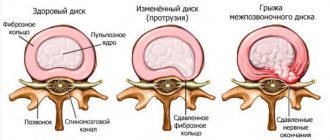Violation of the normal perception of the surrounding world and oneself is a pathological condition, which in medicine is classified as depersonalization. Depersonalization is expressed by a painful feeling of change, lack of unity or loss of the most important personality qualities that are acquired in the process of life experience (character, worldview, value system, life attitudes, etc.). Patients with depersonalization feel that their “I” has completely changed, the old “I” has disappeared, they have lost their spiritual world, they have lost their individuality and independence. As a rule, all patients with depersonalization are prone to “soul-searching” and persistent attempts to figure out “what’s wrong with them.”
In simple terms, depersonalization is a state in which a person feels “changed”, “not the same as before”, “lost some important personality properties”. In extreme, most pronounced cases, he “sees” and evaluates himself from the outside. Often the pathological condition under consideration is referred to as depersonalization-derealization, which implies not only a split personality, but also a violation of the perception of the surrounding world - the patient seems to be inside a virtual game, all the objects and living creatures around him have a flat shape or an unreal color.
At CELT you can get advice from a psychiatrist.
- Appointment with a psychiatrist with an extended interview, psychotherapy session - 4,700
Make an appointment
Causes of depersonalization
Depersonalization-derealization syndrome is a mental disorder that occurs within the framework of:
- neurotic disorders;
- neurological disorders;
- suffered shock (for example, after a serious injury);
- frequent stress;
- schizophrenia;
- manic syndrome;
- depressive syndrome.
The condition in question can be short-term or long-term, and in the latter case, such a mental disorder often leads to suicide. If the depersonalization-derealization syndrome is short-term, then most likely it is triggered by some kind of nervous shock (death of a loved one, trauma, and so on). The short-term course of the condition in question always ends in complete recovery without any consequences, although this may take several months.
Causes of pathology
Derealization is a neurotic disorder that affects people without any special mental pathologies who experience excessive mental and physical stress, are in a stressful situation and lack sleep. In addition, derealization can be a symptom of any disease, both somatic and mental.
The main reasons for the occurrence of such a pathological condition include:
- biochemical factors. A decrease in the number of neurotransmitters responsible for the normal functioning of the psycho-emotional sphere, as well as deterioration in the functions of the neural opiate system and a lack of gamma-aminobutyric acid;
- hereditary factors. It has been proven that the tendency to increased anxiety may have genetic background. In addition, within one family, as a rule, there is a single way of responding to stressful situations, also determined genetically;
- personal and psychological factors. This category of reasons includes excessive suspiciousness and impressionability of a person, heightened pedantry and perfectionism, increased demands on oneself and fixation on negative emotions;
- somatic factors. Some organic diseases can lead to the development of similar phenomena. Such pathologies include diseases of the respiratory and cardiac systems, thyroid dysfunction and low blood sugar levels;
- social factors. Psychological trauma received in childhood, an unfavorable environment at home or in a team, as well as various stressful situations can lead to a person feeling symptoms of derealization and depersonalization.
Derealization can be triggered by poor nutrition, non-compliance with rest and sleep schedules, and addictions.
Derealization, as well as depersonalization, are not dangerous pathologies. They will only slightly worsen the quality of life. This is how the human psyche wants to protect itself from potentially stressful situations and traumatic experiences. That is, it is a kind of defense mechanism. But you can and should get rid of this condition, but this requires the help of specialists.
Symptoms of depersonalization-derealization syndrome
The clinical picture of depersonalization in some cases is quite vivid - complaints sound characteristic and typical for this disorder, and in some cases it is difficult for the patient to determine and express “what is wrong with him,” and the essence of all his complaints will come down to the painful repetition of the phrase “with me.” something is happening, I don’t feel good, something bad happened to me, I don’t understand.” In a conversation with such patients, it is important to correctly formulate questions and be able to identify that element of mental activity, the perception of which is impaired in the patient.
Doctors consider several symptoms of the syndrome:
- A feeling of altered mental processes is a feeling that the information entering the brain, as it were, “encounters a kind of internal barrier and cannot be assimilated in full,” in other words, there is a feeling of impaired perception of information. Trying to express this, patients say that they are “as if covered with a cap,” “placed in a glass flask,” “separated from the environment by an invisible wall.” This may be a feeling of disruption of one or more mental functions (emotions, thinking or activity) - or even all mental activity, which is accompanied by a feeling of “incompleteness of consciousness” and a subjective disturbance in the perception of one’s memories, ideas that lose brightness, seem pale, indistinct, “unreal”. With pronounced depersonalization, there is a feeling of strong alteration or loss of several mental functions or all mental activity, up to a complete loss of the sense of one’s own existence.
- A feeling of altered perception of bodily sensations - obtained through various senses (vision, hearing, various types of skin and other sensitivity), which are expressed, for example, by a feeling of physical emptiness, numbness, mortification in various parts of the body, in more severe cases there is a feeling of complete absence various organs, body parts, body weight, etc. In especially severe cases, a feeling of complete absence of the body may develop, but at the same time, in contrast to depersonalization of mental functions, the feeling of the mental “I” is always preserved.
- A feeling of changes in the perception of the surrounding space - color, volume, contrast: patients complain that the sounds of the outside world are heard muffled, distant or, on the contrary, deafeningly loud, everything seems too bright or, on the contrary, faded, as if it were a set for a film, as if painted, unreal, fake.
People around you may notice disturbances in a person with depersonalization-derealization syndrome of a mental nature:
- he sits in one place and in one position for a long time, as if he has nothing to do and does not need to go anywhere;
- the patient cannot remember what he likes and what he doesn’t (for example, does he like apples);
- lack of desire to lead an active lifestyle - the patient does not wash things, does not clean the house, does not attend work/school.
Symptoms
To recognize a disorder, you need to know its symptoms. During derealization, a person is in the following state:
- The feeling that there is a “veil” or “haze” in the head. Visual images are perceived as if in a fog.
- Perception of signals from the surrounding reality with some delay.
- Everything that happens at a given moment is perceived as a movie or a dream, and the person himself feels like an outside observer. Patients often talk about a feeling of unreality of what is happening.
- Inability to obtain a positive emotional response from things and activities that previously brought pleasure.
- Visual and auditory perception is dulled. The colors become faded and the sounds become muffled. Tactile perception may also be impaired and taste buds may be temporarily disabled. Food and drinks seem tasteless.
- The sense of time is distorted. A person may say that all processes have frozen or are moving too quickly.
In severe forms of the disorder, short-term memory loss may occur. After an attack, a person is unable to remember who he talked to today, what he ate, etc.
The most important symptom of derealization and depersonalization is the person's extreme anxiety about the condition. Based on this sign, the psychotherapist can assume the presence of a disorder in the patient.
Classification of the syndrome
In medicine, it is customary to distinguish several forms of depersonalization-derealization syndrome:
- Autopsychic. The patient becomes immersed in himself, he experiences fear and confusion, because he feels that he has changed, is not the same as before, his feelings and thoughts have changed, they are “spoiled”, “unreal”. This type of disease in question is often characterized by the following behavior: reluctance to communicate with friends and family, an external absence of emotional manifestations, complaints of memory loss (incomplete).
- Allopsychic. It is this type of depersonalization syndrome that doctors call derealization - the patient perceives the surrounding reality as a dream or a game/fairy tale. Characteristic signs of such a disorder will be a lack of understanding of one’s location in familiar places, indifference/complete ignorance when meeting a familiar person, problems recognizing people (sometimes they all seem the same to the patient), and the inability to clearly determine the color and shape of objects.
- Somatopsychic. This form is considered the most unusual because patients present strange complaints - for example, they may feel like they are not wearing clothes, or that each part of their body exists separately, and so on. We can say that the somatopsychic type of depersonalization-derealization syndrome is characterized by a pathological perception of one’s own body.
How to get rid of derealization and depersonalization
Tip one - get out of the vicious circle of anxiety
As I already wrote, very often people (especially people with panic attacks and anxiety) begin to worry very acutely about their condition: inventing terrible diseases, fearing the harm that derealization can cause them.
First, I remind you that this condition is not dangerous. Secondly, as we remember, it is very often just one of the symptoms of anxiety. What does it mean? This means that when you start worrying about the symptoms of derealization, you provoke more anxiety or panic attacks, which in turn worsen the derealization!
So relax and try to let go of thoughts about your condition. If derealization has come, then it has come. You are already in “this boat”, so there is no point in worrying and stressing yourself out. Relax and try to accept this state. Don't resist or resist him. It's temporary. Just as it came, it will go.
You must strive for this, although it is difficult. People with chronic anxiety have such an anxious mind that they tend to worry constantly about everything. And when there is no reason, the mind finds one. And at first, it is very difficult to break this established habit and help yourself relax and stop worrying. However, it is possible. The following tips will partly address this problem.
Tip two - develop concentration
Psychologists give the following advice.
If you love to read, then you probably have a plan about what books to read in the future. (And if you don’t like it, it’s time to start) Personally, there are many books on my plan that are not very exciting, maybe even boring, but, nevertheless, I think that I need to read them. These could be books on history, science, or even fiction, serious, deep, but not exciting. Read books like this.
Try to keep your attention on the text (which will “slip”, since the text is not interesting) and return it every time you get distracted. This, firstly, will develop your concentration and certain areas of the brain, and secondly, it will allow you to be closer to the area of experience. After all, books, after all, stimulate your emotions, give birth to images in your imagination, helping you to be closer to yourself.
Diagnostic measures
This syndrome is diagnosed based on the patient’s complaints and information from relatives, which describe human behavior characteristic of this disease. No examinations, collection of tests or instrumental examinations make it possible to identify mental abnormalities of the nature in question; on the contrary, people with progressive depersonalization-derealization syndrome look absolutely healthy.
The diagnosis of depersonalization is made clinically - through conversation or semi-structured interview. All additional examination methods are prescribed only in cases where it is necessary to exclude concomitant pathologies.
Diagnostics
In our center, patients with suspected disorders are examined by psychiatrists.
Diagnosis is based on:
- Examination and questioning of patients.
- Identifying characteristic diagnostic signs.
- Purpose of additional studies: EEG, MRI.
During the survey, doctors try to discover the root cause of the disorder. Finding the source of the problem helps solve the question of how to get rid of the deviation. When in doubt, specialists use the method of dynamic observation. This requires hospitalization.
Psychologists provide assistance in diagnosis. They use psychological tests, questionnaires, the Kokoshkarova questionnaire, and Nuller scale assessment. These techniques allow us to establish the intensity, severity and other characteristics of the disorder.
Our specialists accompany the diagnostic process by comparing the disorder with hallucinations and illusions (to exclude the latter).
General principles of treatment
Depersonalization-derealization syndrome is a mental disorder for which an individual approach is used to treat. If this condition was caused by some kind of nervous shock and is some kind of “protection” of the body after powerful emotional outbursts, then treatment comes down to a course of psychotherapy. After the specialist talks with the patient and assesses his condition, antidepressants and various physiotherapeutic procedures - acupuncture, herbal medicine, soothing massage - can be prescribed. As a rule, with a competent approach to prescriptions, this pathological condition passes without complications, and the patient’s condition is completely restored.
But if the depersonalization-derealization syndrome is protracted and accompanied by suicidal attempts, then such patients need to be treated only in inpatient departments of medical institutions; they are prescribed antipsychotics and tranquilizers in large doses. If such treatment tactics give positive results, and the patient becomes calmer and begins to perceive the world around him in a normal light, then he is prescribed psychotherapy, and all medications are discontinued. Psychotherapists work with such patients for a long time, and even after discharge from a medical institution, they must periodically visit a specialist in order to finally get rid of obsessive, incorrect sensations.
Depersonalization-derealization syndrome is a fairly serious mental disorder that can easily be corrected. If you find these symptoms in yourself or your loved ones, we recommend that you consult a specialist. To clarify the diagnosis and receive qualified medical care, you can contact CELT. This is one of those conditions in the treatment of which our psychoneurologists achieve good results.
Make an appointment through the application or by calling +7 +7 We work every day:
- Monday—Friday: 8.00—20.00
- Saturday: 8.00–18.00
- Sunday is a day off
The nearest metro and MCC stations to the clinic:
- Highway of Enthusiasts or Perovo
- Partisan
- Enthusiast Highway
Driving directions
How to get to the clinic for examination and treatment
If you don’t know how to deal with derealization symptoms, contact our medical center. Hotline number 8(969)060-93-93 . It operates 24 hours a day on weekdays, holidays and weekends. Consultants answer calls free of charge and anonymously. From them you can find out all your questions, make an appointment with a doctor at the clinic or make a house call.
The medical center website has additional options:
- Order a call back.
- Online consultation.
- Registration of initial consultation.
The specialists on duty will help you find out the exact prices for diagnostic and therapeutic procedures of interest, and will give advice on derealization.










